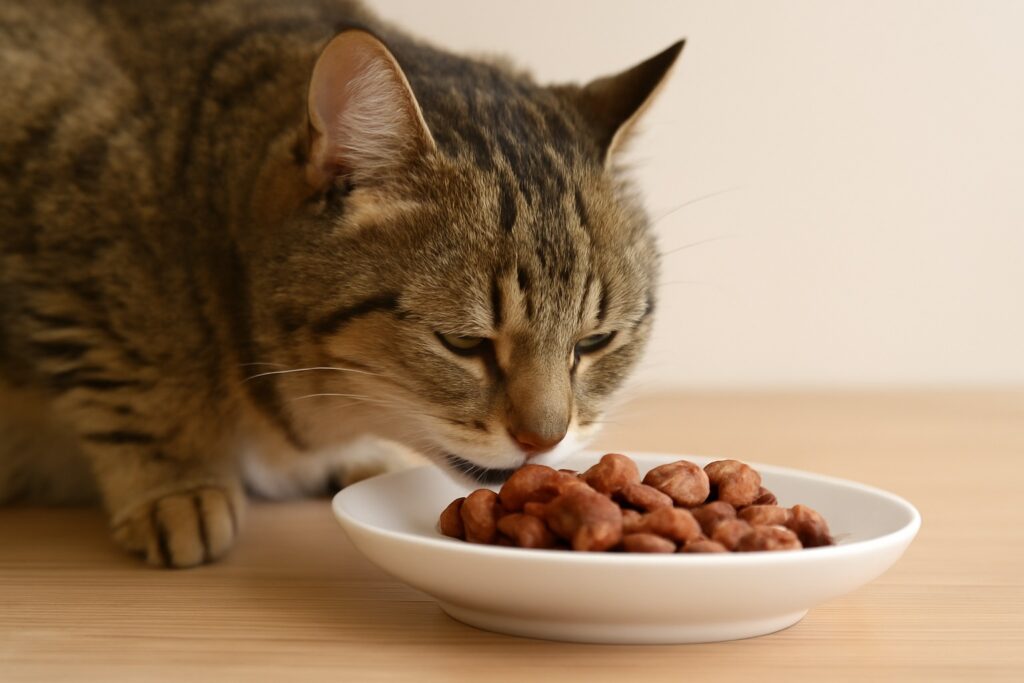
Cats are known for their selective tastes and particular preferences, especially when it comes to treats. For cat owners, finding the right treats that balance enjoyment with health benefits is always a priority. This becomes even more critical when your feline friend is facing dental problems. Dental health in cats is often overlooked but is essential to their overall well-being. If your cat struggles with oral discomfort, you might wonder: Are soft treats good for cats with dental problems? Let’s dive into this question to help you make the best choice for your pet.
Understanding Dental Problems in Cats
Dental problems in cats are quite common. Issues like gingivitis, periodontal disease, tooth resorption, and tooth decay can cause significant pain, difficulty eating, and even affect a cat’s internal health. According to veterinary studies, about 70% of cats over the age of three experience some form of dental disease.
Symptoms to watch out for include:
- Bad breath
- Drooling
- Difficulty chewing or dropping food
- Pawing at the mouth
- Swollen or bleeding gums
- Weight loss
If you notice any of these signs, a vet visit is necessary to diagnose and treat the condition properly. Once dental problems are identified, dietary adjustments, including the choice of treats, become an important part of managing your cat’s oral health.
Why Treat Choice Matters for Cats with Dental Issues
When a cat has dental pain or sensitivity, hard treats and crunchy kibble can aggravate the problem, causing discomfort or even injury to damaged teeth or gums. This is why many veterinarians and pet nutritionists recommend switching to softer, gentler treats during dental flare-ups or ongoing dental conditions.
The texture, ingredients, and nutritional value of treats can impact:
- Comfort during eating
- Healing of gums and oral tissues
- Prevention of further damage
- Maintaining overall nutrition and satisfaction
Soft treats can offer a solution, but the choice must be made carefully.
Are Soft Treats Good for Cats with Dental Problems?
Pros of Soft Treats for Cats with Dental Problems
- Gentle on Sensitive Teeth and Gums: Soft treats are easier to chew and less likely to cause pain or discomfort, making them ideal for cats struggling with dental sensitivity or missing teeth.
- Moisture Content Aids Hydration: Some soft treats have higher moisture content, which can help maintain oral moisture and reduce irritation caused by dryness.
- Palatability and Appeal: Cats with dental pain might lose interest in food. Soft treats tend to be more palatable and aromatic, encouraging cats to eat and enjoy their snacks.
- Variety of Formulations: Many soft treats are enriched with vitamins, minerals, and dental-supportive ingredients like enzymes and antioxidants that promote oral health.
Cons and Considerations
- Sticky or Residue-Forming: Some soft treats can leave sticky residues on teeth, potentially promoting plaque formation if not managed with good dental hygiene.
- Sugar or Additives: Certain soft treats contain sugars or ingredients that could exacerbate dental problems if fed frequently. Always read labels carefully.
- Not a Substitute for Dental Care: While soft treats can be helpful, they are not a replacement for proper dental treatment, regular cleanings, and vet visits.
Summary
Soft treats for cats with dental problems can be a compassionate and practical choice. They allow your cat to enjoy treats without discomfort, and when chosen wisely, can support oral health. The key is to select the best soft cat treats specifically formulated to be gentle and beneficial for cats with dental sensitivities.
Choosing the Best Soft Cat Treats for Dental Health
If you decide to incorporate soft treats into your cat’s diet, here are some tips on choosing the best soft cat treats for cats with dental problems:
- Look for Veterinary Recommendations: Some brands offer dental-specific soft treats formulated with ingredients that promote plaque reduction and gum health.
- Avoid Sugars and Artificial Sweeteners: These can worsen dental issues. Opt for natural, limited-ingredient treats.
- Check for Added Dental Support: Ingredients like chlorophyll, zinc, or natural enzymes help reduce bad breath and inhibit bacteria.
- Moisture and Texture: Opt for treats that are soft but not overly sticky to avoid residue buildup.
- Size and Portion Control: Small, bite-sized treats minimize chewing effort and reduce the risk of choking or aggravating dental pain.
- Hypoallergenic or Limited Ingredient: Cats with sensitivities may benefit from treats free of common allergens.
Tips for Feeding Soft Treats to Cats with Dental Problems
- Combine with Regular Dental Care: Soft treats are best used alongside daily brushing or dental wipes to maintain oral hygiene.
- Monitor Your Cat’s Response: Watch for signs of discomfort or changes in eating habits after introducing new treats.
- Limit Treat Quantity: Treats should not exceed 10% of your cat’s daily calorie intake to prevent obesity and maintain balanced nutrition.
- Consult Your Veterinarian: Before making significant changes to your cat’s diet, especially if dental disease is present, get professional advice tailored to your cat’s condition.
Alternative Treats and Dental Products
Besides soft treats, there are other products designed to support cats with dental issues:
- Dental Chews: Specially formulated hard treats designed to clean teeth as cats chew. Not suitable for all dental problems, though.
- Dental Gels and Rinses: Products applied directly to gums and teeth to reduce plaque and inflammation.
- Prescription Diets: Some veterinary diets include kibble and treats aimed at improving dental health.
Final Thoughts
Soft treats for cats with dental problems can be a wonderful way to keep your furry friend happy and comfortable while managing their oral health. By selecting the best soft cat treats that are gentle, nutritious, and beneficial for dental care, you can provide enjoyable rewards without compromising their health. Remember, treats are just one piece of the dental care puzzle — routine veterinary checkups and proper oral hygiene are essential for long-term well-being.
Frequently Asked Questions (FAQs)
1. Are soft treats better than hard treats for cats with dental problems?
Yes, soft treats are generally better for cats experiencing dental pain or sensitivity because they are easier to chew and less likely to cause discomfort or damage to sensitive gums and teeth.
2. Can soft treats cause dental issues like plaque or tartar buildup?
Some soft treats can leave residues that may contribute to plaque if oral hygiene is poor. It’s important to choose treats formulated to support dental health and maintain regular brushing or dental care routines.
3. How often should I give soft treats to a cat with dental problems?
Treats should be given in moderation, ideally making up no more than 10% of your cat’s daily calorie intake. Overfeeding treats, even soft ones, can lead to weight gain and other health issues.
4. What ingredients should I look for in the best soft cat treats for dental health?
Look for treats containing natural enzymes, antioxidants, and dental-supportive ingredients like zinc or chlorophyll, and avoid those with added sugars or artificial sweeteners.
5. Should I stop feeding treats if my cat has severe dental disease?
Always consult your veterinarian. In some cases, feeding treats may need to be temporarily paused or adjusted based on the severity of dental issues and treatment plans.


